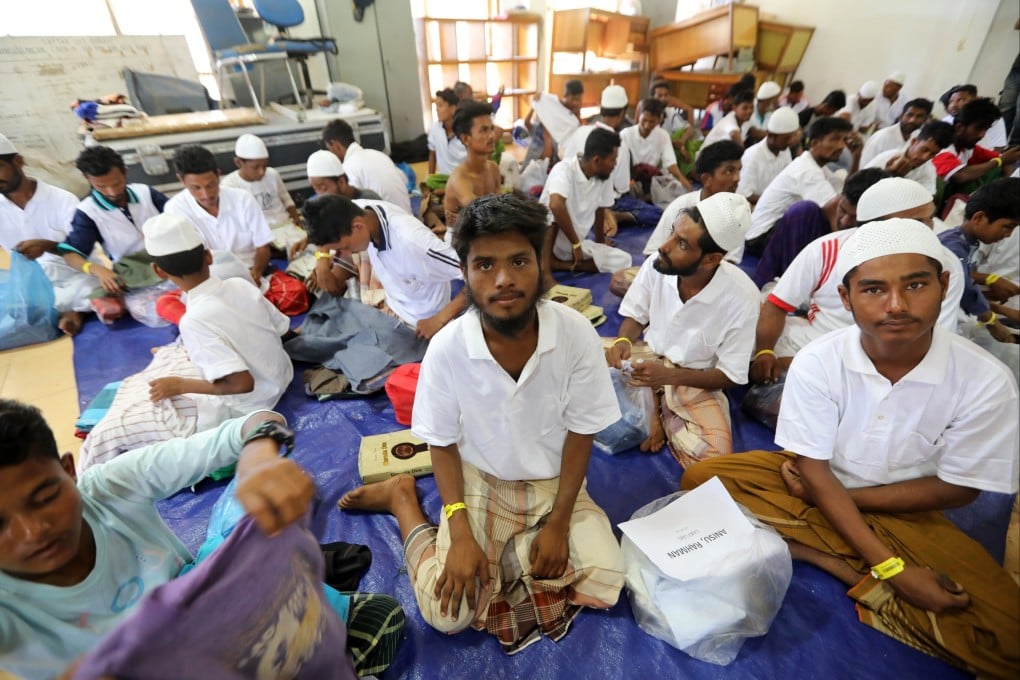Rohingya crisis in Indonesia a ‘ticking time bomb’ if political indifference, misinformation continue: analysts
- Analysts point to social-media disinformation to ‘discredit’ and ‘demonise’ Rohingya refugees in the lead-up to the presidential election in February
- They say the government has not been inclined to counter such narratives, which have stoked paranoia about the refugees and led to conflict

The orange truck crammed with 75 Rohingya survivors of a capsized boat was told to hurry along by Indonesian police in Beureugang, West Aceh, as dozens of angry villagers gave chase, shouting “[we] reject the presence of refugees here!”

Observers warn of a “ticking time bomb”, saying worse conflict between locals and refugees is inevitable without a concerted effort to counteract the false narratives against the Rohingya.
Khan, who acts as an interpreter for the United Nations High Commissioner for Refugees (UNHCR), was on the ground last month to help with the rescue of the 151 refugees aboard the capsized boat, working in tandem with Indonesia’s National Search and Rescue Agency (Basarnas).
Al Hussain, Basarnas’ Aceh chief, said his teams were doing their best but were stretched thin. “The boat was headed back into open sea after local residents refused to let it come ashore [on March 19]. We were only alerted [it had capsized] afterwards and arrived on the scene two days later.”
